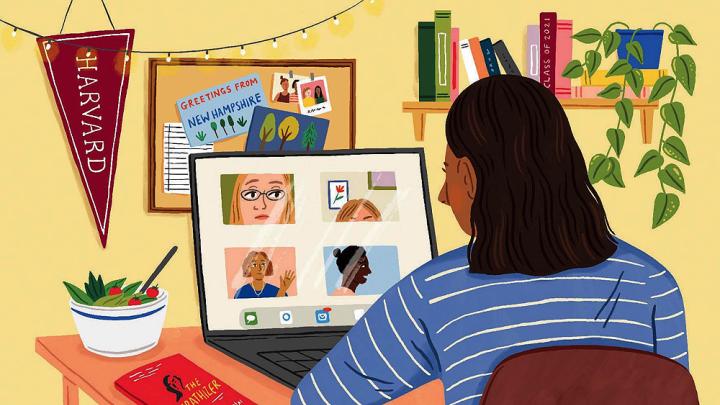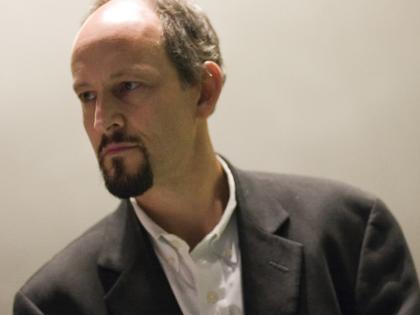My earliest friendships at Harvard were fashioned on a T-ride to Fields Corner, where a group of fellow first-year students and I were to help repaint a Vietnamese American community center during a weeklong preorientation program.
On that sunny August morning commute from Cambridge to Dorchester, in our matching purple preorientation T-shirts, we played icebreaker games and bonded over the inimitable teenage vogue of late 2017: fidget spinners, Snapchat streaks, Ed Sheeran’s “Shape of You.”
During the initial days of freshman orientation, my new friends and I clung tightly to one another. We gave each other tours of our respective dorm rooms in the Yard. We coordinated frequent meals in Annenberg Hall, terrified to sit alone amid hundreds of unfamiliar faces. We relished 25-cent Wednesday wings at the Queen’s Head Pub. We went thrift-shopping in Central Square.
But as the weeks passed, we became to one another what Indian Canadian essayist Scaachi Koul deems the “University Friend.” In One Day We’ll All Be Dead and None of This Will Matter, Koul defines such a friend as existing “in only one ecosystem, a relationship that requires the confines of a school, of a space in time where you are lost and digging for belonging, where your identity is so scattered you’re just happy to be loved.”
The University Friend is ubiquitous at Harvard: for some, encountered amid the deluge of extracurricular “comp” meetings that sculpt the opening weeks of every semester; for others, discovered by chance in packed lecture halls during the biannual maelstrom of shopping week. It is important to note that the University Friend is distinct from a friend from university: the former ceases to exist when a class ends, a club is abandoned, or campus is vacated, but the latter has the potential to be everlasting.
At the nascence of our preorientation group’s friendship, we were—quite fittingly—still disoriented, and simply yearned for familiar companionship. But by October, I had ventured into Harvard’s political sphere, spending most of my spare time at the Institute of Politics. One of my friends began the process of joining The Harvard Crimson’s news staff. Another had started to spend most of his time in the astrophysics department, near the Quad.
Soon, preorientation began to feel like a fugitive dream. We started to see each other less frequently, caring less about sending text messages to catch up or initiating meet-ups in the colossal dining hall. A few of us individually remained friends beyond the fall semester, but our original group had crumbled—and that had seemed inevitable and irreversible and surprisingly okay.
As I came to discover, I shed University Friends yearly, or more often. Typically, this happens each May, as I cram my winter clothes into cardboard boxes to store in the Adams House basement for the summer and prepare to return to the debilitating Arizona heat. It happened when, as a freshman, I decided that my Friday nights were more comfortably spent holed up in my room immersed in a book—or with a friend and a movie—than elbowing my way through throngs of strangers at a party in the Quad. It happened when I left the mock-trial team mid-year as a sophomore, renouncing weekend-long competitions in New York to stay on campus and tackle heaps of schoolwork that, despite my painstaking attention, never seemed to relent.
Shedding University Friends is a particularly pronounced phenomenon during a pandemic, when the traditional structure of the University collapses. Again, the dissolution is sometimes gradual. Perhaps there are a few FaceTime calls made, text messages exchanged, Zoom meetings scheduled in the interim, where small talk flourishes and conversations about past activities resurface to fill the void. Yet underneath, there is a feeling of imminent termination, as if without premeditated catch-up meetings at predictable, nonnegotiable intervals, the connection will fade into the ether. University Friends are not invariably present during moments of crushing distress or boundless joy because you must think twice before sending them a text message. You must script a list of topics to discuss if you are to reunite with them outside your shared activity, because the friendship won’t feel natural beyond the borders of its birthplace.
Finding a University Friend most often happens, Koul notes, when one’s identity is in disarray, such as when a semester begins. The COVID-19 pandemic has stripped students of those experiences—the feeling of disorienting wonder gleaned from walking around a bustling Harvard Square on a Saturday afternoon, from squeezing through the wooden doors of Sever Hall while jostling against hordes of fellow students during shopping week, from sitting in on an introductory computer science lecture in Sanders Theatre filled with hundreds of other undergraduates, struggling to keep up with the professor’s rapid explication of how to use Scratch.
I recently reconnected with a friend from Harvard who sent me a text for my twenty-first birthday. He suggested we catch up over FaceTime. On the call, it dawned on us that we had not spoken in nearly a year: our interactions had devolved into a semesterly meal at best. In some ways, he had become a University Friend. But there was a time when we were much closer than that.
We initially met through a high-school scholarship program and reconnected a few months later as college freshmen, through a study group for an introductory government class. That year, we participated in the campus political magazine and a consulting group I quit after a semester. Our friendship, though not entirely defined by our shared activities, was fortified by them, coupled with the disorienting wonder we both experienced as Harvard neophytes. But there were also moments that transcended those confines, like during Yardfest 2018, when we both perused readings for our respective classes in his dorm room in Matthews Hall and tried desperately—unsuccessfully—to drown out the ear-splitting noises emanating from Tercentenary Theatre. That afternoon, my friend and I didn’t need a common activity to bond; rather, we were confident our friendship could flourish even while we read for different classes in a shared space. Moments like this established him as my friend from university.
Despite the year’s hiatus, our FaceTime conversation grew to feel natural. From small talk, we eventually moved on to the books we were reading and the ideas we were pondering. I began to question the ways I had neatly boxed my various friendships into categories to avoid the disappointment of expecting too much beyond the boundaries of campus. I considered: might University Friends have the potential to become friends from university? Can a friendship that has ebbed renew itself in a manner more meaningful than rehashing shared moments of the past? Perhaps it can, I told myself—thinking of another Indian Canadian essayist, Durga Chew-Bose, and her conviction, in Too Much and Not the Mood, that “we’re all just here...finding new ways of becoming old friends.”
The pandemic has largely rendered University Friendships obsolete. During this time, friendships can no longer be purely circumstantial: it takes special effort from both parties to keep them afloat. The very process of salvaging a University Friendship may help foster its evolution into a more sincere, less contrived friendship from university.
As I spend my pandemic days indefinitely corralled in my childhood home, I am searching for ways to renew some of those University Friendships. FaceTime calls that evolve from prepared small talk to natural conversation, like the one with my friend this summer, are just a starting point. There is also something profoundly gratifying about connecting with friends while still embracing the solitude of pandemic-era living. Watching the same television shows—perhaps together, through online programs like Netflix Party—or reading the same books as a friend who lives across the country can foster a bond capable of sustaining itself outside Harvard. This summer, I read The Sympathizer at the behest of one friend and savored the television legal drama How to Get Away with Murder thanks to another friend’s recommendation. I tried flavorful salad recipes crafted by a friend from Nebraska, received uplifting postcards mailed by a classmate in New Hampshire, and listened to eclectic Spotify playlists curated by a friend in Colorado.
Some of these individuals were already friends from university with whom I was accustomed to interacting casually and frequently. But others were University Friends who reached out to me years after we took a class together or last shared a meal in the dining hall. I indulged in their suggestions: tossing salads, reading books, watching television, and listening to music in their absence. Nevertheless, I felt connected to them; each activity was inspired by their individual prompting. These activities, I realized, were a form of bonding with friends, albeit silently, and in an unusual state of solitude. And doing so offered proof that what I had long assumed was a robust, insurmountable boundary between University Friends and friends from university was, in fact, much more dynamic and permeable.
Sometimes, when I wake up and am still trying to blink the sleep out of my eyes while lying in bed, I scroll backward through the photos on my iPhone to August 16, 2017, the day I first arrived at Harvard. Dread bubbled inside me as I hoisted my pink suitcase out of my Uber and passed under the palatial Johnston Gate into the Yard, arriving hours later than the rest of my fellow preorientation participants after a red-eye, cross-country plane journey. Unable to find the check-in area amid a cluster of imposing red buildings and colorful chairs sprinkled across the Yard, I fought to keep myself from breaking down in tears. Little did I know that in just a few hours, I was going to meet the people who would become my first friends at Harvard.
The photos on my phone are a testament to my social salvation that evening. Our preorientation group sits in a circle on lush grass behind Holworthy Hall. Our hands grasp flimsy plastic cups filled to the brim with vibrantly colored boba—a drink I first found unbearably sweet but soon came to relish, largely because I sipped it so frequently in the Square with new friends. At the end of the week, we are shown with our arms wrapped around each other, posing for a final photo at the Dorchester community center where we volunteered.
That week, we became friends out of necessity, our relationships solidifying my eventual assumptions about University Friendships: namely, their seeming rigidity and evanescence. But the pandemic has shown me otherwise. As I alternately bask and wallow in my solitude, I delight in surprise texts from former section-mates and club members, asking how I am doing or recommending films and podcasts they have enjoyed. These messages, severed from Harvard and its appendages, are no longer remnants of University Friendships. They are seeds of friendships from university.








